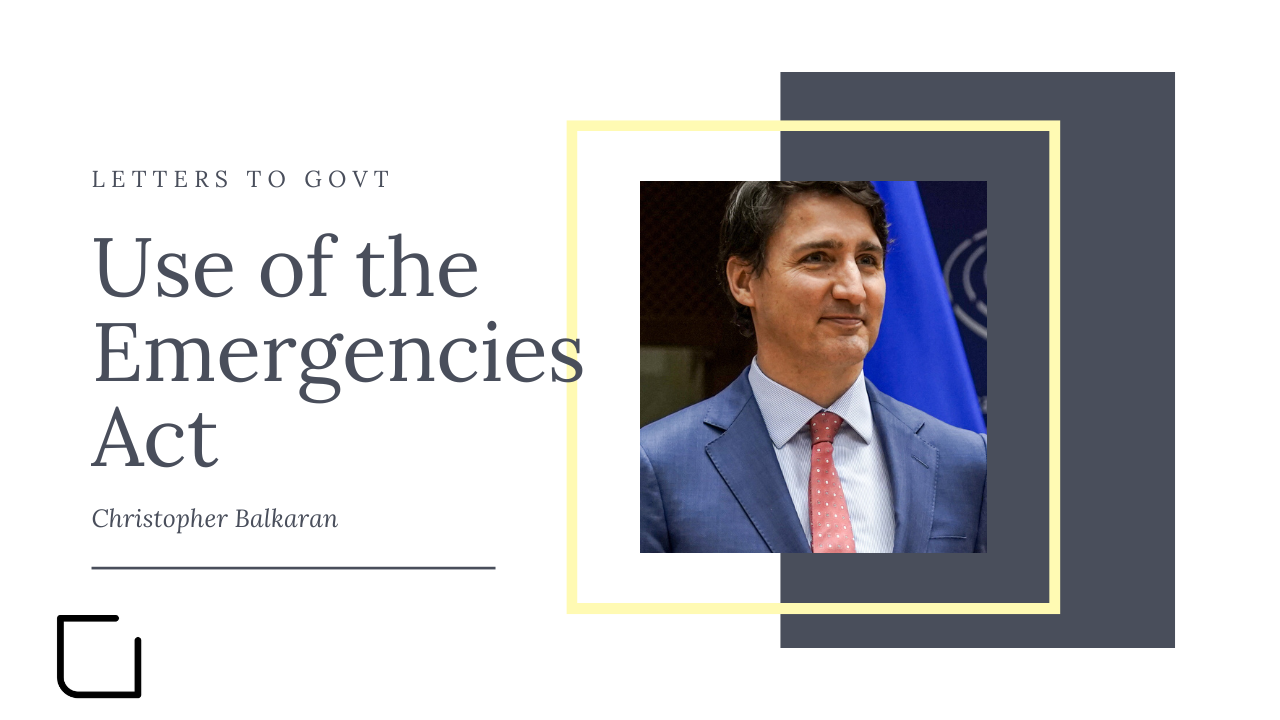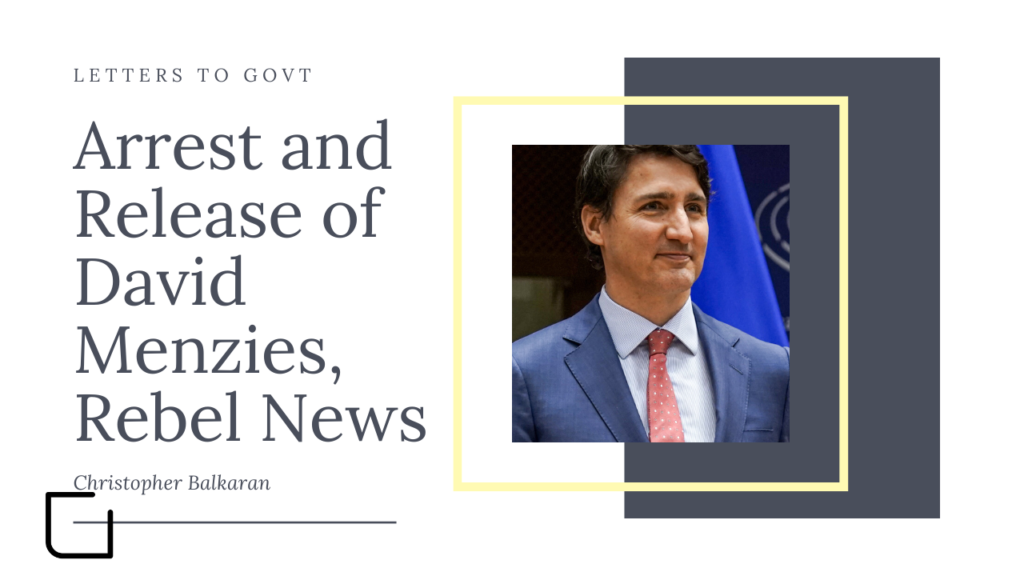Justin Trudeau
House of Commons
Ottawa, ON
K1A 0A6
Dear Prime Minister Trudeau,
I am writing with regard to the federal government’s passing of enacting the Emergencies Act (R.S.C., 1985, c. 22 (4th Supp.)) (the Act) in response to the Public Order Emergency issued by yourself. I would like to express my concern as you have voted in favour and am inquiring to see what checks will be maintained for Canadian citizens’ freedoms protected in the Charter of Rights and Freedoms while the Act is in place.
My specific concerns with the Act include the language under the ‘Public Order Emergency’ section (19) [highlights are my own]:
19 (1) While a declaration of a public order emergency is in effect, the Governor in Council may make such orders or regulations with respect to the following matters as the Governor in Council believes, on reasonable grounds, are necessary for dealing with the emergency:
-
(a) the regulation or prohibition of
-
(i) any public assembly that may reasonably be expected to lead to a breach of the peace,
-
(ii) travel to, from or within any specified area, or
-
(iii) the use of specified property;
-
-
(b) the designation and securing of protected places;
First, I understand from this reading the government has the enhanced responsibilities to regulate and prohibit any public assembly that will lead to a breach of the peace. May I please ask how the federal government is defining the term ‘reasonably’? This definition is important because Canadians have Fundamental Freedoms protected in the Canadian Charter of Rights and Freedoms [highlights are my own]:
Fundamental freedoms
2 Everyone has the following fundamental freedoms:
(a) freedom of conscience and religion;
(b) freedom of thought, belief, opinion and expression, including freedom of the press and other media of communication;
(c) freedom of peaceful assembly; and
(d) freedom of association.
The definition of ‘reasonably’ would also need to include an understanding that a breach of the peace would follow. Can you please explain the interpretation the federal government has used, in which you voted in favour of, to anticipate a breach of the peace would occur as a result? Are there any enhanced measures the federal government may enact to monitor Canadians and ensure subsequent protests regarding vaccine mandates do not occur?
Second, how is the phrase ‘the use of specified property’ being defined in the passing of the Act? Does this phrasing include both public and private property? In Section 19, the Orders and Regulations are focused on public assembly – however, s.19(1)(a)(iii) includes the ‘use of specified property’. I would like clarification, because as you know, property rights are enshrined in our Rights as Canadians. The Canadian Bill of Rights includes the following:
Recognition and declaration of rights and freedoms
1 It is hereby recognized and declared that in Canada there have existed and shall continue to exist without discrimination by reason of race, national origin, colour, religion or sex, the following human rights and fundamental freedoms, namely,
(a) the right of the individual to life, liberty, security of the person and enjoyment of property, and the right not to be deprived thereof except by due process of law;
(b) the right of the individual to equality before the law and the protection of the law;
(c) freedom of religion;
(d) freedom of speech;
(e) freedom of assembly and association; and
(f) freedom of the press.
I am concerned by the government’s enacting of these rules as the language governing actions are nebulous and can pose challenges moving forward. In Ontario, a political staffer was fired for a $100 donation to the Freedom Convoy. While this decision is not one you, nor the federal government is responsible for, it does signal to me that the interpretation of the Act can be used freely by governments of all levels.
I am also concerned because the recent protests in Ottawa are due to the federal government’s imposition of vaccine mandates governing specific sectors of employment. Requirements on vaccine certifications have come under intense scrutiny worldwide, and Provinces and major US cities are lifting and reconsidering these restrictions.
Your response to these matters, including a clear understanding of how the language in the Act is being interpreted and understood is very important. Granting such powers to the federal government should not come without substantial debate, discussion and consternation. I am deeply concerned that these new federal powers may curtail the rights and freedoms of Canadians on an incredibly important topic of vaccine mandates.
Thank you for your time and attention to this matter. And thank you for your service to the people of Canada.
Christopher Balkaran





